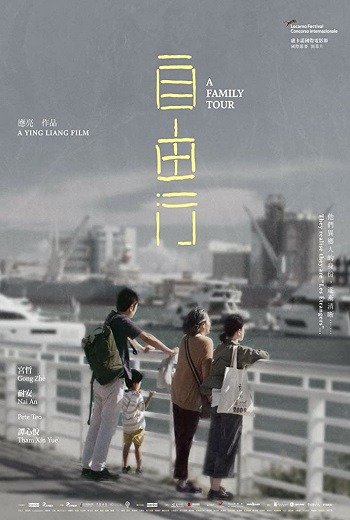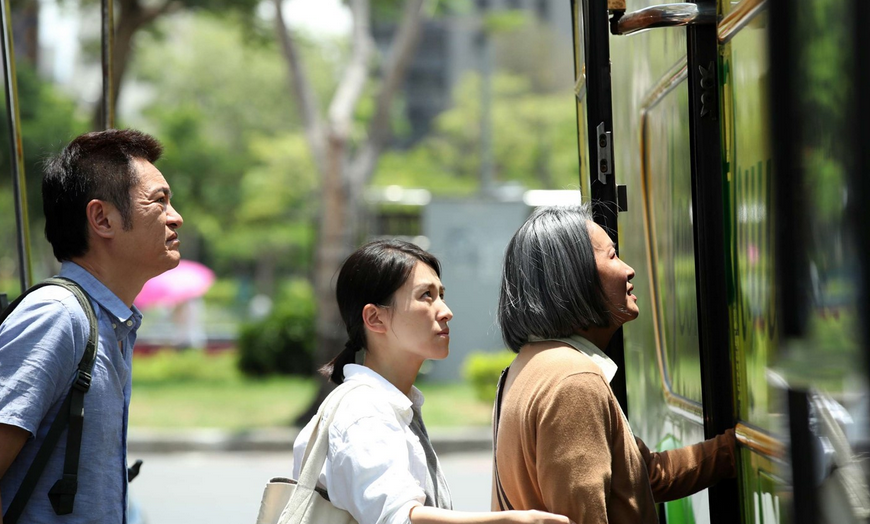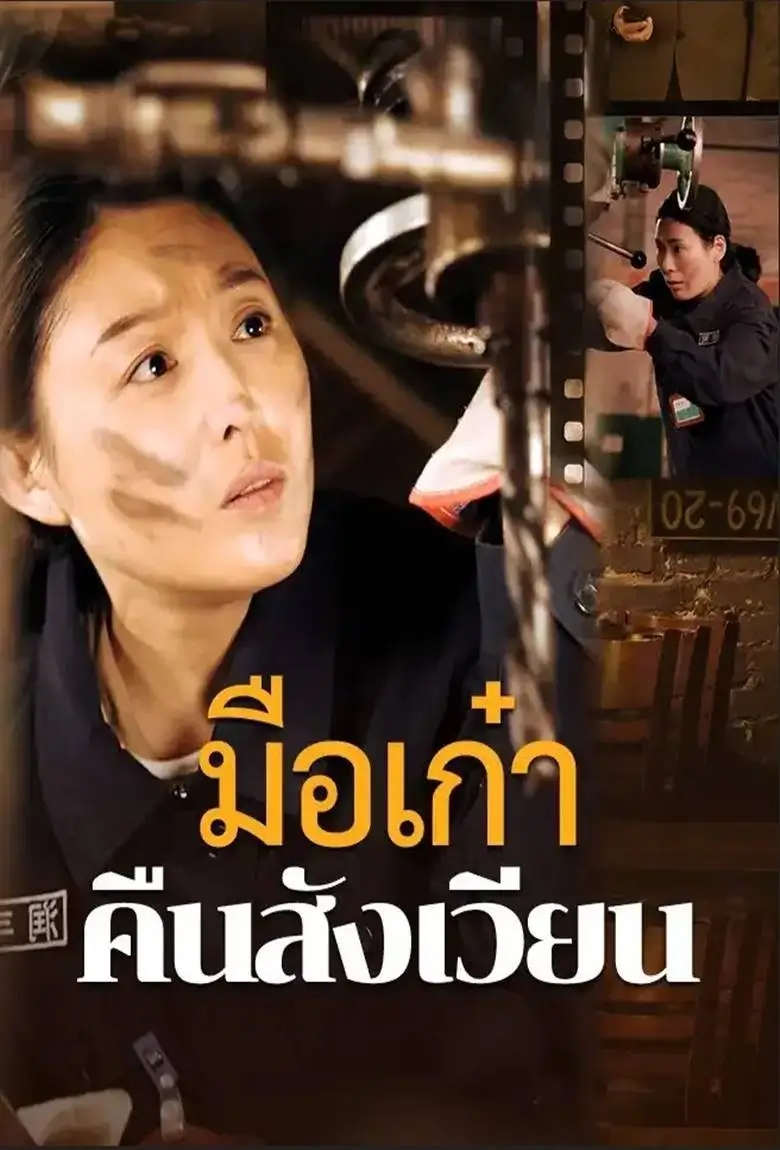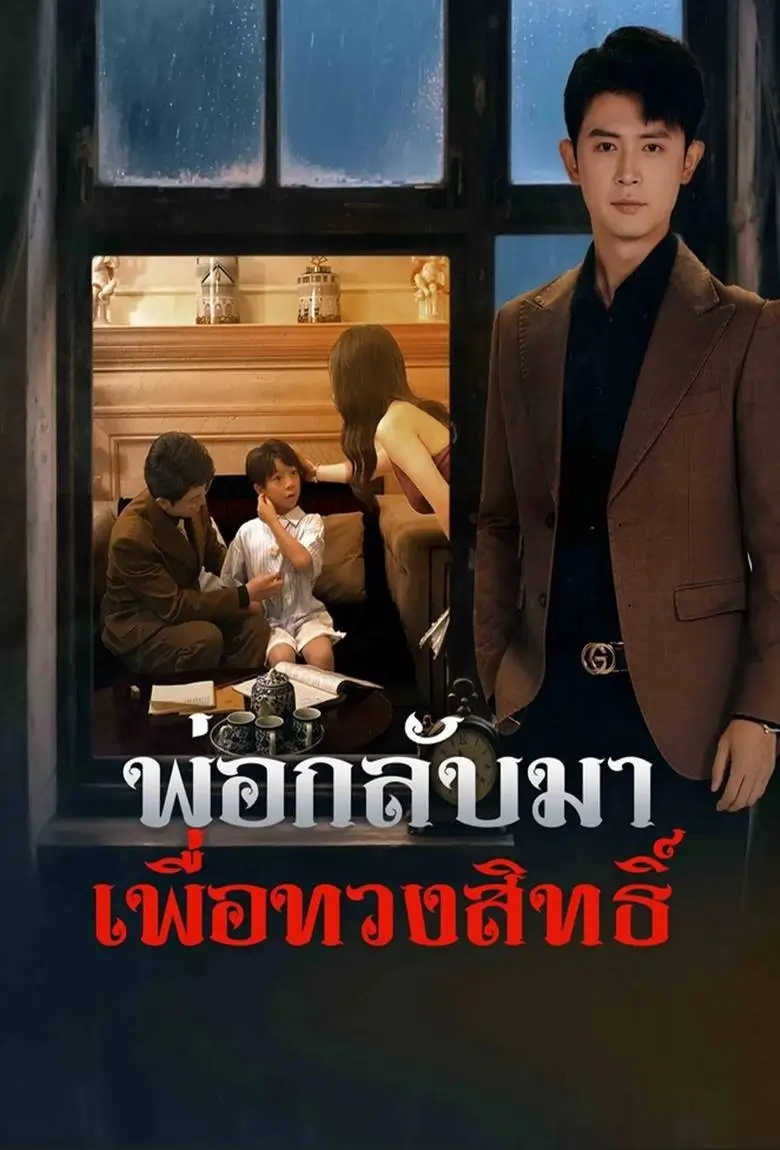A Family Tour ทัวร์สนุก (สุดเศร้า) (2018) [ พากย์ไทย ]


หมวดหมู่ : หนังดราม่า
เรื่องย่อ : A Family Tour ทัวร์สนุก (สุดเศร้า) (2018) [ พากย์ไทย ]
ชื่อภาพยนตร์ : A Family Tour ทัวร์สนุก (สุดเศร้า)
แนว/ประเภท : Drama
ผู้กำกับภาพยนตร์ : Liang Ying
บทภาพยนตร์ : Liang Ying, Wai Chan
นักแสดง : Nai An, Zhe Gong, Pete Teo
วันที่ออกฉาย : 2 August 2018
ผู้ผลิตที่อาศัยอยู่ในสภาพที่ถูกขับไล่ในฮ่องกงเยี่ยมชมเทศกาลในไทเปเพื่อนำเสนอภาพยนตร์ที่มีข้อ จำกัด ในจีนแผ่นดินใหญ่ ด้วยคนสำคัญและวัยรุ่นคนสำคัญของเธอที่อยู่ใกล้เธอได้จัดให้มีการเยี่ยมชมเพื่อพบกับแม่ของเธอซึ่งแม้จะมีชีวิตทุกอย่างในดินแดนอยู่แล้วก็ตาม “ทัวร์สนุก สุดเศร้า” เพื่อหลีกเลี่ยงความคิดที่น่ารำคาญครอบครัวจึงไล่ตามโค้ชโดยประกาศว่าเป็นบุคคลใกล้เคียง เมื่อพิจารณาถึงประสบการณ์ที่แท้จริงของ Ying Liang อย่างเป็นทางการสิ่งเหล่านี้น่ากลัวในอเมริกา “A Family Tour” แต่เรื่องราวของ Ying Liang นั้นเป็นสัญลักษณ์ที่สั่นสะเทือนของจำนวนเงินที่น่ากลัวยิ่งขึ้นที่พวกเขาจะได้รับ.

IMDB : tt8731042
คะแนน : 6.2
รับชม : 1425 ครั้ง
เล่น : 3 ครั้ง
To get what the exiled mainland Chinese director Ying Liang is up to in his semi-autobiographical A Family Tour requires an understanding of the geopolitical dynamics that inform the film’s plot: Chinese nationals who travel to Taiwan generally do so as part of strictly organized tour groups, since applying for travel permits requires applicants to prove they’re employed and that they have substantial financial assets in their home country. This travel quirk may be difficult for those in the West to comprehend, but Ying’s understanding of the threat posed to globalization by authoritarian governance should have universal resonance.

To put it another way, A Family Tour examines the emotional toll taken by individuals finding themselves separated by the inflexibilities of international politics. Ying has incorporated much of his own experience as a filmmaker in exile into this fictional narrative of Yang Shu (Gong Zhe), a woman who was forced to flee to Hong Kong after she directed the politically inflammatory When Night Falls—which also happens to be the title of a 2012 film made by Ying himself. Yang, her husband (Pete Teo), and their three-year-old son (Tham Xin Yue) travel to Taiwan for a film festival and use the opportunity to reunite with Yang’s elderly mother, Chen Xiaolin (Nai An), who Yang hasn’t seen since she was forced to leave China five years ago. Yang is only able to secure Chen’s passage by registering her with a tour group, an arrangement that requires Chen to diligently travel to all the destinations on her tour bus’s route, while Yang and her family follow close behind in a cab.
At the various sites throughout the tour, Yang and her mother steal away from others in their group to grab a few private moments together. And it’s through these interactions that Ying slowly and organically reveals more about Yang’s life in exile, her parents’ history of political prosecution (her father was sent to a reeducation camp in the 1950s), and the circumstances surrounding the production of her new film, about the 2014 Umbrella Movement protests in Hong Kong. As with Ying’s other films, A Family Tour consists mostly of patient master shots, which here allow for the long-separated Yang and Chen to gradually engage with each other, and begin to bridge the distance that’s been imposed upon them. The brilliance of Yang’s aesthetic is a balance of poeticism and realism, the sustained illusion of documentary verisimilitude despite the deliberate craft of Yang’s incisive screenplay.
To get what the exiled mainland Chinese director Ying Liang is up to in his semi-autobiographical A Family Tour requires an understanding of the geopolitical dynamics that inform the film’s plot: Chinese nationals who travel to Taiwan generally do so as part of strictly organized tour groups, since applying for travel permits requires applicants to prove they’re employed and that they have substantial financial assets in their home country. This travel quirk may be difficult for those in the West to comprehend, but Ying’s understanding of the threat posed to globalization by authoritarian governance should have universal resonance.
To put it another way, A Family Tour examines the emotional toll taken by individuals finding themselves separated by the inflexibilities of international politics. Ying has incorporated much of his own experience as a filmmaker in exile into this fictional narrative of Yang Shu (Gong Zhe), a woman who was forced to flee to Hong Kong after she directed the politically inflammatory When Night Falls—which also happens to be the title of a 2012 film made by Ying himself. Yang, her husband (Pete Teo), and their three-year-old son (Tham Xin Yue) travel to Taiwan for a film festival and use the opportunity to reunite with Yang’s elderly mother, Chen Xiaolin (Nai An), who Yang hasn’t seen since she was forced to leave China five years ago. Yang is only able to secure Chen’s passage by registering her with a tour group, an arrangement that requires Chen to diligently travel to all the destinations on her tour bus’s route, while Yang and her family follow close behind in a cab.
At the various sites throughout the tour, Yang and her mother steal away from others in their group to grab a few private moments together. And it’s through these interactions that Ying slowly and organically reveals more about Yang’s life in exile, her parents’ history of political prosecution (her father was sent to a reeducation camp in the 1950s), and the circumstances surrounding the production of her new film, about the 2014 Umbrella Movement protests in Hong Kong. As with Ying’s other films, A Family Tour consists mostly of patient master shots, which here allow for the long-separated Yang and Chen to gradually engage with each other, and begin to bridge the distance that’s been imposed upon them. The brilliance of Yang’s aesthetic is a balance of poeticism and realism, the sustained illusion of documentary verisimilitude despite the deliberate craft of Yang’s incisive screenplay.
Ying’s film is righteously and vigorously angry about injustices committed by the Chinese government, but where his earlier work tended to calcify around that anger, A Family Tour offers a more complex and contemplative take on themes of political dissent, and even the effectiveness of cinema as an outlet for protest. Through Chen’s self-awareness—she laments that her house is going to be demolished in order to build a new road but also muses, “Think of it as a contribution we make to the country”—Ying earnestly engages with a worldview counter to Yang’s consummate defiance, presenting a character who has been the victim of injustice throughout her life, and who has learned to live with it, for the sake of protecting herself and her family. Ying uses Chen to interrogate the uncompromising attitude of his own stand-in, Yang, just as he uses one scene of a cab driver calling Yang’s films “boring,” and a later scene of Chen falling asleep watching Yang’s latest film, as a means of reflecting on his own ambitions as a director, and the ultimate value of his art.
It’s to the film’s credit that these various perspectives are never reconciled—that Yang, like Ying, never makes peace with the limits of her own subversiveness, or the effect that it has on her splintering family. Instead, Ying only recognizes the degree to which this art inevitably alienates: Toward the end of A Family Tour, an attendant at the film festival asks Yang, “Are you a Hong Kong citizen? Or a Chinese citizen?” To which Yang responds, “I’m a stranger.” This is a sentiment that, whatever one’s response is to the kinds of films that Ying makes, is easy to identify with—and the great strength of A Family Tour is its capacity to articulate the feelings of anxiety, anger, frustration, and perseverance felt by so many separated families.














